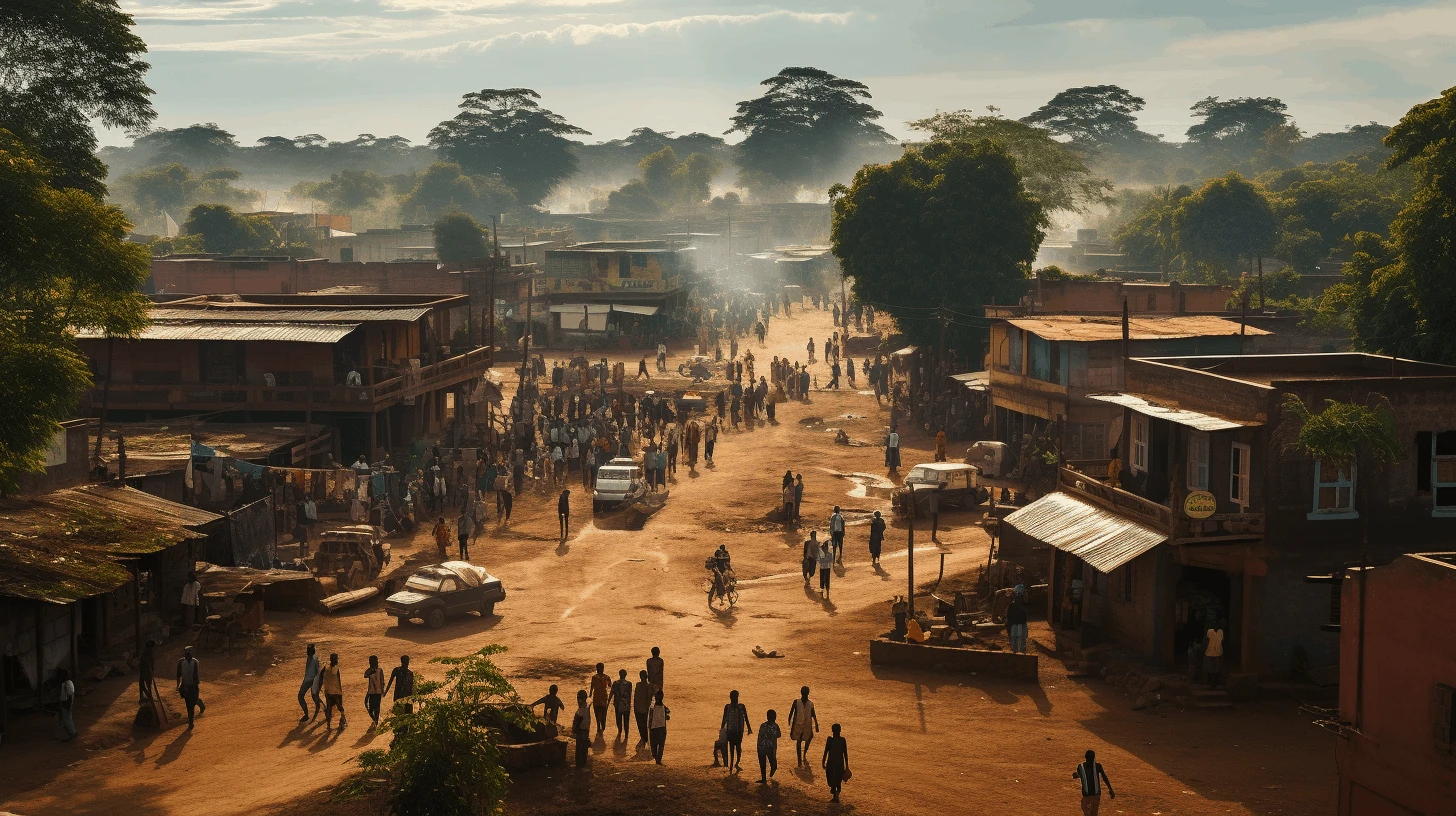
Prayer times in Central african republic
5:38 AM • +01:00 GMT
Payer Times for Cities in Central african republic
| City | Fajr | Sunrise | Dhuhr | Asr | Maghrib | Isha |
|---|---|---|---|---|---|---|
| Bambari | 04:39 | 05:48 | 11:49 | 15:06 | 17:50 | 18:55 |
| Bangassou | 04:30 | 05:39 | 11:40 | 14:56 | 17:42 | 18:47 |
| Bangui | 04:47 | 05:56 | 11:57 | 15:13 | 17:59 | 19:04 |
| Berbérati | 04:59 | 06:08 | 12:09 | 15:25 | 18:11 | 19:16 |
| Bimbo | 04:47 | 05:57 | 11:58 | 15:13 | 17:59 | 19:05 |
| Bossangoa | 04:52 | 06:02 | 12:02 | 15:19 | 18:02 | 19:08 |
| Bouar | 04:59 | 06:09 | 12:09 | 15:26 | 18:10 | 19:15 |
| Bria | 04:34 | 05:43 | 11:44 | 15:01 | 17:44 | 18:50 |
| Carnot | 04:58 | 06:07 | 12:08 | 15:24 | 18:09 | 19:15 |
| Mbaïki | 04:49 | 05:58 | 12:00 | 15:15 | 18:01 | 19:06 |
Prayer Times of Others Cities in Central african republic
About Central african republic
The Central African Republic (CAR), a landlocked country in the heart of Africa, borders Chad to the north, Sudan to the east, the Democratic Republic of the Congo and Congo to the south, and Cameroon to the west. The capital, Bangui, home to vibrant markets and colonial-era architecture, overlooks the Ubangi River, a major transport artery for the country. Diverse terrain in the CAR includes a northern Sahelian savannah, a dense, equatorial rainforest in the southwest, and a fertile grassland in the central and eastern parts of the country. Despite its rich mineral resources like diamonds, uranium, and oil, the CAR remains one of the poorest countries in the world due to political instability, conflict, and weak infrastructure. Ethnic and religious tensions have led to civil unrest, disrupting economic growth and human development. However, the people of the CAR, known as the Central Africans, are diverse and rich in culture. With over 80 ethnic groups, each with its unique customs and languages, the country is a tapestry of vibrant traditions. While the official languages are French and Sangho, many people also speak tribal languages. The Central Africans are known for their 'Zokela' music, traditional artistry, folklore, and cuisine that includes local produce such as cassava, peanuts, and maize.